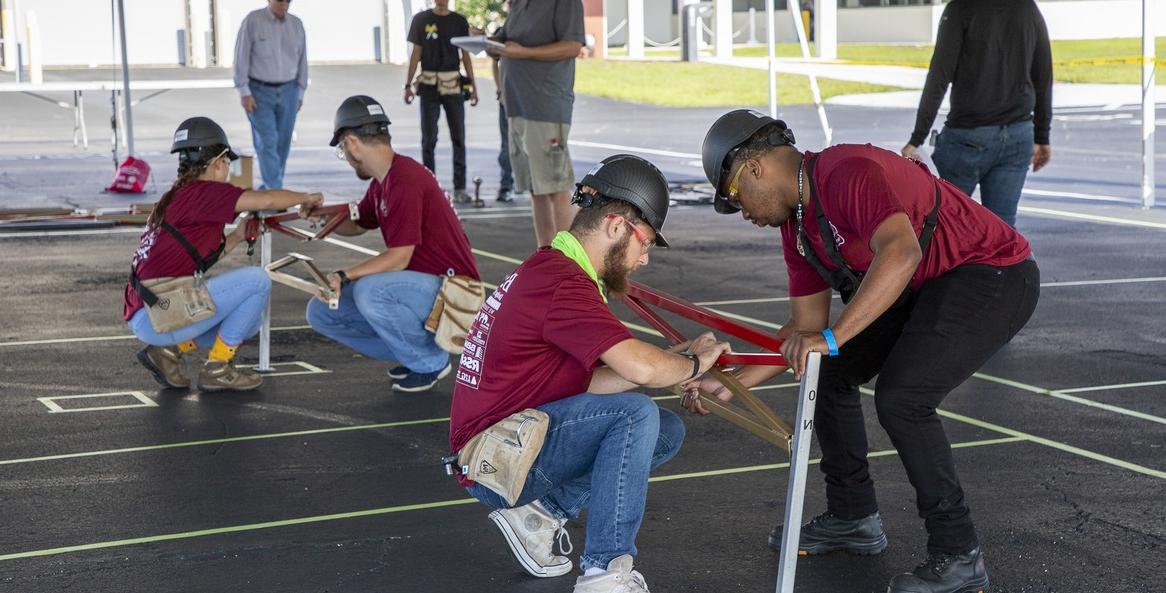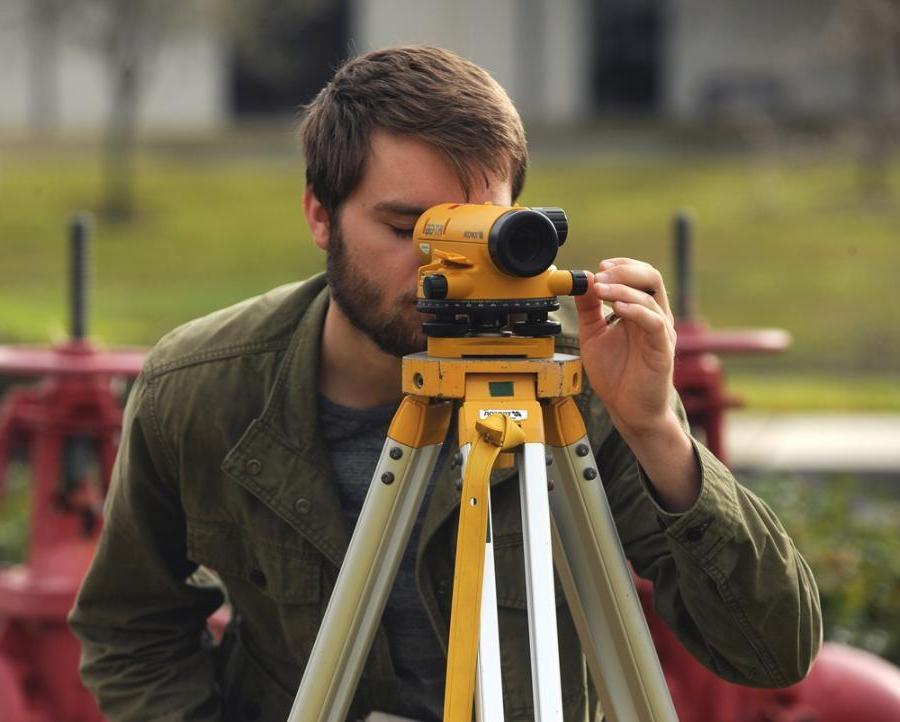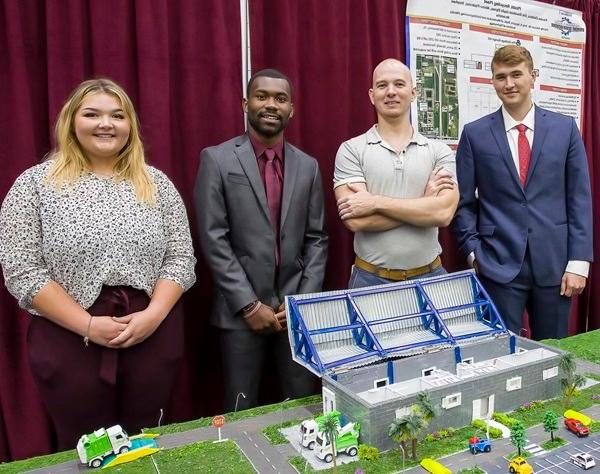You’ve Got a Network to Build—It Starts Here
Beyond the classroom, civil engineering degree students build leadership and professional experience through exciting internships and participation in academic organizations like Tau Beta Pi (the oldest engineering honor society in the U.S.), student government and over 200 other campus-wide student organizations.
Florida Tech’s chapter of the American Society of Civil Engineers (ASCE) is one of our most active organizations on campus. ASCE takes part in several national competitions to test members' engineering skills, including concrete canoe and steel bridge competitions. Our concrete canoe team has reached the national level several times and receives sponsorships from a variety of local businesses.
Chi Epsilon is a civil engineering honor society dedicated to honoring engineering students who have exemplified the principles of scholarship, character, practicality and sociability in the civil engineering profession.
These organizations offer networking opportunities for future civil engineering internships and careers.
In addition to on-campus groups, professional groups like the Construction Industry Advisory Board (CIAC) provide students with a solid understanding of the many difficult management issues engineering professionals face in the construction industry. The Civil Engineering Advisory Committee (CEAC) connects students with the civil engineering industry by providing guest lecturers, field trip opportunities and civil engineering internships.


 Give to Florida Tech
Give to Florida Tech 



